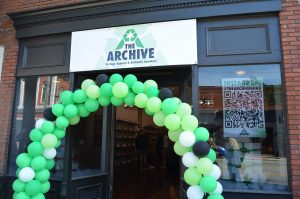GSU seeks to improve internet connection
October 24, 2012
The Department of Network and Telecommunications is in the process of creating ideas for focus groups for students due to recent complaints about on-campus Internet connectivity.
“Focus groups will educate students about the connection. It will give us better insight with residence. They can learn these issues and how the connection works,” Bob Grogan, director of Information Technology of Business and Finance, said.
“In these focus groups it would be great for students to voice whatever opinions they have about the Internet connection. We don’t have a definite time and group but for now it is just an idea that can maybe prove helpful to students,” Ann Hill, director of Network and Telecommunications, said.
In the residence halls of Georgia Southern University, students may either use an Ethernet cable to connect to the Internet or they can use the wireless connection from ResNet.
“The Wi-Fi connection is kind of a moving target, but the wired connection seems to be fine,” Grogan said.
Bandwidth is the available or used data, expressed in bits per second. The bandwidth on campus often reaches its max, Krey Tinker, network administrator, said.
“The bandwidth is what shares the connection between the Ethernet and Wi-Fi. It may max out which makes it slower. The streaming that comes from things like Netflix may impact the bandwidth a lot more,” Tinker said.
When students use the Internet all at once, the connection is slowed down.
“The total number of students living on campus in residence halls is around 4,500. When students use the connection all at once in a room, the Wi-Fi would be slowed down causing traffic,” Hill said.
“We have seen a decline in complaints. Students were becoming more computer savvy,” Grogan said.
“Caching will help reduce the amount of bandwidth. It will do a reduction as the bandwidth reaches the Internet pipeline,” Tinker said.
“ResNet gets more complaints particularly from residence halls with freshman,” Grogan said.
“It reduces the amount of bandwidth being used because common videos or high visited sites are cached onsite, and users will not need to go off campus to visit (that) video (or) site, which in turn reduces the traffic going out to the Internet (or) Bandwidth,” Hill said.
“We monitor what bandwidth was used and ask for more. We can see peaks, valleys, and trends. We have increased the bandwidth the last two years,” Hill said.
Each residence hall provides help to students when they are having issues with the Internet Connection.
“There are about four to five technicians in each residence hall. ResNet is the first to respond to complaints. They’ll dispatch a technician to fix the issue,” Grogan said.
“They’ll hand the issue over to the Telecommunications Department so that we can work with the student if it’s a big issue,” Hill said.
Currently, students also have the opportunity to voice their opinions on the Internet connection through a series of surveys.
Grogan said, “ResNet will pass a survey asking for feedback from our residents. We ask about how often the computer labs are being used as well as other ways of Internet connection.”






